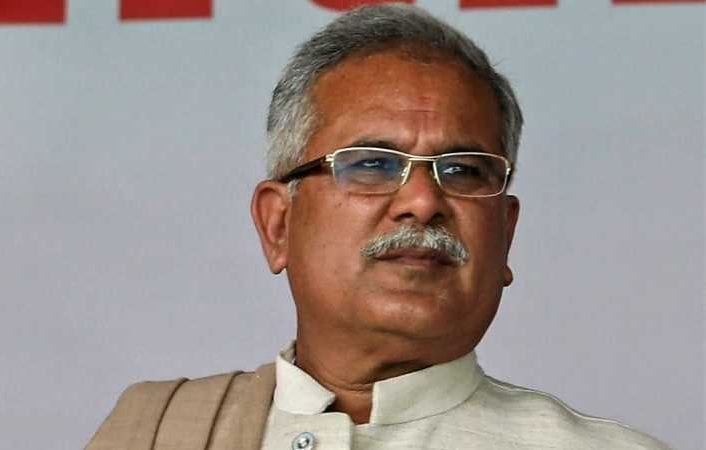
One by one states oppose NRC and CAA; now it's Chhattisgarh
Bhupesh Baghel has joined the list of chief ministers opposing the proposed countrywide National Register of Citizens (NRC), which along with the contentious Citizenship (Amendment) Act (CAA) has triggered widespread protests and violence across the country, resulting in arson and multiple deaths.

Bhupesh Baghel has joined the list of chief ministers opposing the proposed countrywide National Register of Citizens (NRC), which along with the contentious Citizenship (Amendment) Act (CAA) has triggered widespread protests and violence across the country, resulting in arson and multiple deaths.
The Chhattisgarh chief minister on Saturday (December 21) said if the NRC is implemented in his state, over half the population will not be able to prove their citizenship as they neither have land nor land records. He said half the people in Chhattisgarh do not possess any document to prove their citizenship as their ancestors were illiterate.
Chief Ministers of other states, including Mamata Banerjee (West Bengal) and Nitish Kumar (Bihar), had earlier opposed the exercise.
Also read | What NRC? JD(U) chief Nitish Kumar drops the biggest hint till date
Nitish Kumar, who had been facing criticism for supporting new citizenship law, dropped a bomb earlier on Friday, indicating he will not implement the NRC in Bihar. “Kahe ka NRC (What NRC)?” said Kumar replying to a journalist when asked about the exercise.
He is the first chief minister of an NDA-ruled state to shut its doors on the citizens’ register that would be crucial to the BJP-led national coalition delivering on its promise to expel infiltrators. His party’s vice president Prashant Kishor has been a vocal critic of both, the citizenship law and the register.
In West Bengal, Banerjee has been opposing both NRC and CAA. She attended protest rallies every day since Monday till Friday, during which, she made it clear she will not allow the implementation of exercise in the state. During a rally earlier this week, she even said CAA and NRC can be enforced in the state only over “my dead body”.
Also read | Kerala government stays updation of National Population Register
Kejriwal too has openly voiced his opposition to the new Citizenship Act, saying his Aam Aadmi Party will continue to oppose the legislation. AAP had opposed the Bill in the Parliament, however, it was passed by both Houses and was accorded the President’s assent on December 13.
Rajasthan Chief Minister Ashok Gehlot too has opposed the implementation of NRC and CAA, saying they will affect people of all communities. Demanding the Centre to repeal the new law, he said, “CAA and NRC don’t deserve to be implemented in the country. It is the trick of the BJP, (Prime Minister) Modi and (Home Minister) Amit Shah.”
In Maharashtra, BJP’s estranged ally Shiv Sena has also taken an anti-CAA stand, with Chief Minister Uddhav Thackeray saying the new law is an insult to VD Savarkar, the BJP’s Hindutva icon.
Also read | Mamata dares Centre to go for UN-monitored referendum on CAA, NRC
“Savarkar had demanded bringing land from the Sindhu river to Kanyakumari under one country. Instead of doing that, the BJP-led Central government is simply accepting persecuted minorities into India by defying Savarkar, which is an insult to him,” he said.
NCP chief Sharad Pawar too said Maharashtra should also refuse implementation of the new citizenship law like other states. Dubbing the CAA and the proposed NRC “ploys” by the Centre to “divert attention” from serious issues plaguing the country, Pawar expressed apprehension that the Centre might dismiss the state governments opposing the new citizenship law.
Other chief ministers, Kamal Nath (Madhya Pradesh), Pinarayi Vijayan (Kerala) and Amarinder Singh (Punjab), have also opposed the implementation of the contentious legislation in their respective states.
The Citizenship Amendment Act grants Indian citizenship to six communities escaping religious persecution from Pakistan, Bangladesh and Afghanistan – Hindus, Sikhs, Jains, Buddhists, Parsis and Christians. It has been widely criticised for being discriminatory against Muslims.
(With inputs from agencies)

